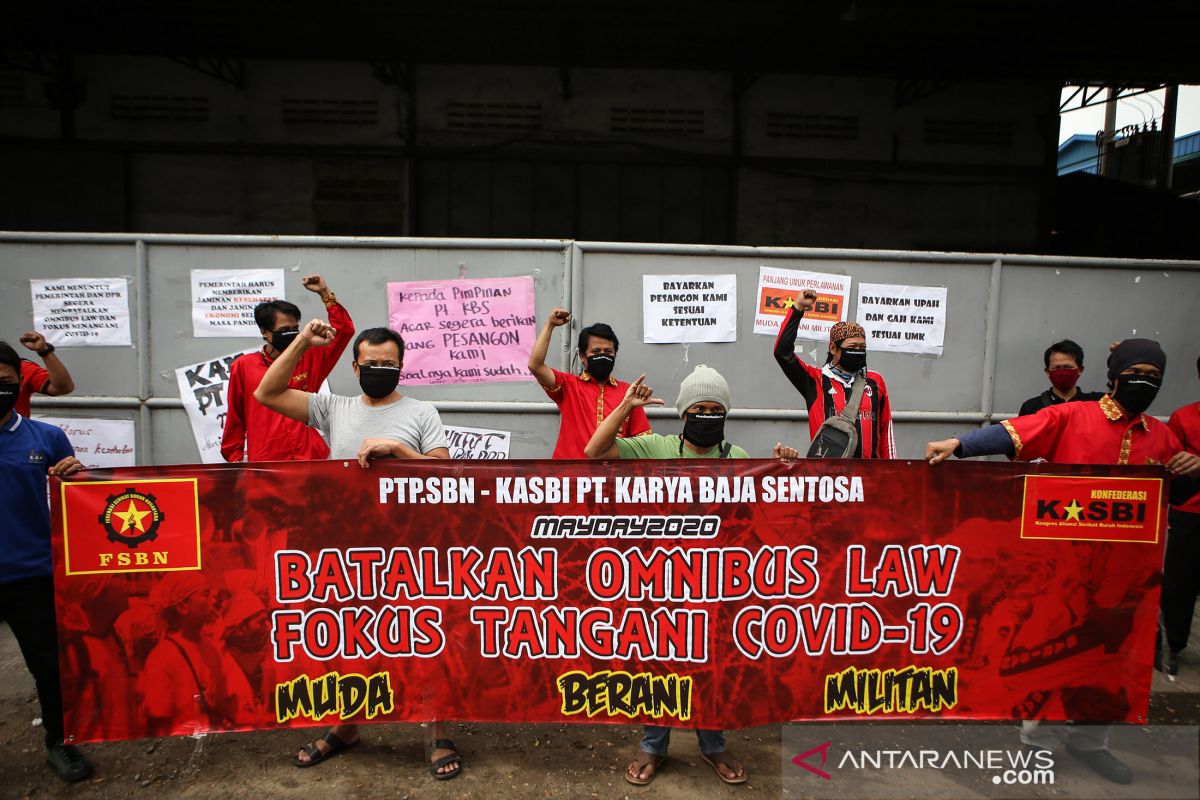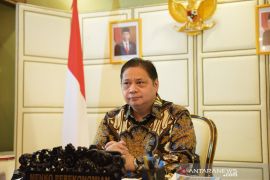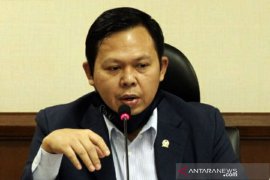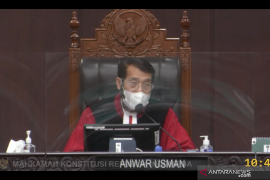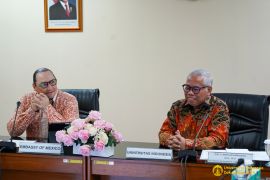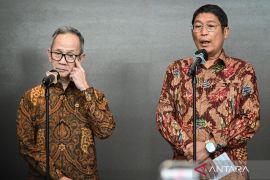They called (on) us to turn down the bill. Of course, we hear their aspirationsJakarta (ANTARA) -
When the House of Representatives’ legislation body started a hearing session on the omnibus bill on job creation last month, workers and labor unions shot off thousands of text messages and missed calls to Parliament members, urging them to stop the meeting and cancel the controversial bill.
“I had at least 10,000 Whatsapp and text messages on my phone, and missed calls, all rejecting the hearing session on the omnibus bill on job creation,” said the body’s deputy chairman, Willy Aditya, from the NasDem Party, last month.
“They called (on) us to turn down the bill. Of course, we hear their aspirations,” he stated, while assuring the legislation body would open dialogue with the labor unions when reviewing the omnibus bill.
Contrary to workers’ expectations, the legislation body went one step ahead by approving a working committee on the omnibus bill on April 20, 2020. The committee, comprising five chiefs and 35 members, is led by a former opposition member, Supratman Andi Agtas from the Gerindra Party.
Of the nine political parties in the House, only the Demokrat Party and the Prosperous Justice Party (PKS) have withdrawn from the committee. Both opposition parties have argued that the hearing session on the omnibus bill is insensitive and irrelevant as many workers are now at risk of being laid off, while others are struggling to feed their families amid the coronavirus crisis.
Besides labor unions and political parties, other groups, such as civil societies and human rights advocates, have urged the Parliament to cancel the bill as it might impinge on people’s fundamental rights and could have disastrous effects on the environment and indigenous groups.
Amid mounting concerns and reservations against the bill, President Joko Widodo and the House’s Speaker have agreed to delay deliberations on labor issues of the omnibus bill on job creation. “This also provides an opportunity for us to further explore the substance of the relevant articles and also to get an input from stakeholders,” President Joko Widodo stated last month.
The decision has been applauded by labor unions, who later canceled a planned nationwide rally ahead of Labor Day on May 1, 2020. Head of the Indonesian Workers Unions Confederation (KSPI), Said Iqbal, stated the delay is a chance to rethink the controversial bill and an opportunity to involve labor unions when deliberating the problematic regulations.
However, the Indonesian Employers Association (APINDO) has opposed the delay, while arguing a plan to remove the labor cluster in the omnibus bill would discourage investors from investing in labor intensive industries. The deliberation on labor issues, the association explained, would ease concerns among investors on potential disputes between companies and their employees.
What is at stake?
The omnibus bill on job creation was proposed by the Indonesian Government, and its final draft was submitted to the Parliament in February this year. The bill would amend 73 prevailing laws on business and investment as well as regulations on manpower, bringing them under a single law.
The bill, according to its supporters, aims to raise both domestic and foreign investment inflow, while creating a more attractive investment climate in the next five years since the President’s re-election last year.
The aim is clearly reflected in the bill’s 15 chapters, in which, articles on business and investment dominate regulations on manpower. Of the total 1,028 pages, at least seven chapters cover relaxations on doing business with corporations and investors. They include easing procedures on environmental impact analysis (amdal), which is now mandatory for all kinds of business operations.
The new proposed bill, which would amend Article 23 in the Law No.32 Year 2009 on Environmental Protection and Management, stipulates the amdal document will be mandatory only for businesses that have significant environmental, social, economic, and cultural impact.
According to environmental and human rights advocates, the revision would hurt indigenous groups and efforts on protecting the environment. Even before the omnibus bill, many indigenous groups in Indonesia have been involved in disputes with corporations due to land acquisitions, with the most notable case being the Samin indigenous group in Kendeng mountains versus state-owned PT Semen Indonesia.
In spite of the concerns, the omnibus bill's proponents would be more likely to highlight its foremost aim: to boost economic growth.
For instance, the President’s spokesperson, Fadjroel Rachman, said the omnibus bill might take Indonesia’s economic growth to 5.7 percent or even higher. “It will also empower our small and medium businesses that contribute 61.7 percent to the gross domestic product and absorb 97 percent of the workforce,” Rachman said in January this year.
However, a promise that the bill might spur the economy would not be enough for most of its opponents.
“Our concerns are that the omnibus bill will hurt labor. Because some of the regulations will allow foreign unskilled workers (to be employed), it will be a massive use of outsourcing, flexible working hours, and a change in payroll scheme from monthly to hourly," KSPI chairman Said Iqbal noted in a statement.
Iqbal, who has been a vocal opponent of the bill, said the existing Law No.13 Year 2003 on Manpower protects labor and their right to a fair allowance and decent treatment in the workplace. "(If the system is changed), companies will arbitrarily determine labor's working hours and the salary they should pay to us," he pointed out.
As for workers, they have high hopes of a fair law that promotes labor reform and assures they would be protected in the workplace. Therefore, they expect the bill to not only serve as a “game changer” for tycoons, but also for workers, farmers, fishermen, and small businesses, which all serve as the backbone to the country’s economy.
Related news: Gauging whether pre-employment card is solution amid COVID-19 pandemic
Related news: Solidarity crucial as corona crisis looms over world of work
Related news: Flexible work: The new normal after the pandemic ends?
Editor: Gusti Nur Cahya Aryani
Copyright © ANTARA 2020
